|
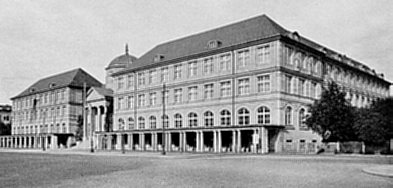 The new building on the Friedrich-Ebert-Allee (1930)
The new building on the Friedrich-Ebert-Allee (1930)
In 1900 Wiesbaden received the museum through a contract with the prussian gouvernment and accordingly started to construct the new building on Kaiser-Strasse (today Friedrich-Ebert-Allee).
The museum's collections were moved from the former building on Wilhelmstraße, corner Friedrichstrasse to their new rooms in 1915.
The scientific direction of the museum continued to be confided to the Nassau Society, resp. its director. [Heineck, 1950 - translated by R. Wedig]
A handcart from 1920 with the inscription
"Naturhistorisches Museum der Stadt Wiesbaden"
[= Natural History Museum of the City of Wiesbaden]
- now in the loft.
|
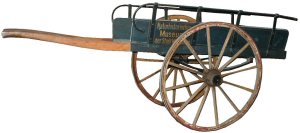
|
The working field of the Society essentially covers the former duchy of Nassau. For understandable reasons, the museum has to value the fact of being considered the Nassau County Museum, a title it could claim by historical means, even though this is not expressed in its official nomination: "New Museum, Natural Science Collections"
In former times it was natural that the director of the Society and the museum would personally support the organisation of the museum by his own collecting activities and scientific evaluation of the material.
I remember the names Sandberger, Kirschbaum, Koch and Pagenstecher. Each of them was an authority in his own specification. Therfore the center of the museum's performances as a scientifical institution was at one time geology, at another time zoology.
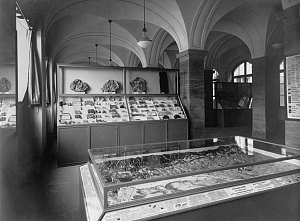
Geological exhibition
Steinsaal, ground floor, cf. 1920 |
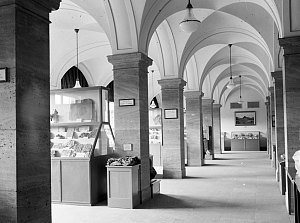
Geological exhibition
Steinsaal, ground floor, cf. 1920 |
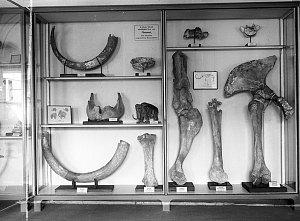
Paläontologische Schausammlung
ground floor, cf. 1920 |
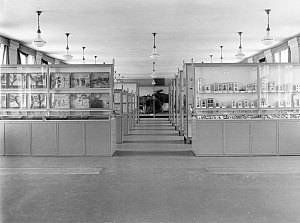
Zoological exhibition
1st floor, cf. 1920 |
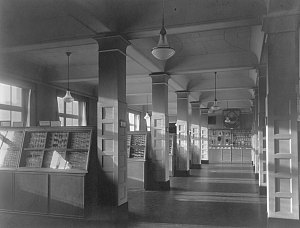
Zoological exhibition
2nd floor, cf. 1920 |
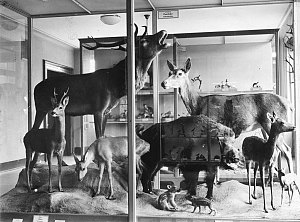
Zoological exhibition
1st floor, Ecksaal, cf. 1920 |

|









